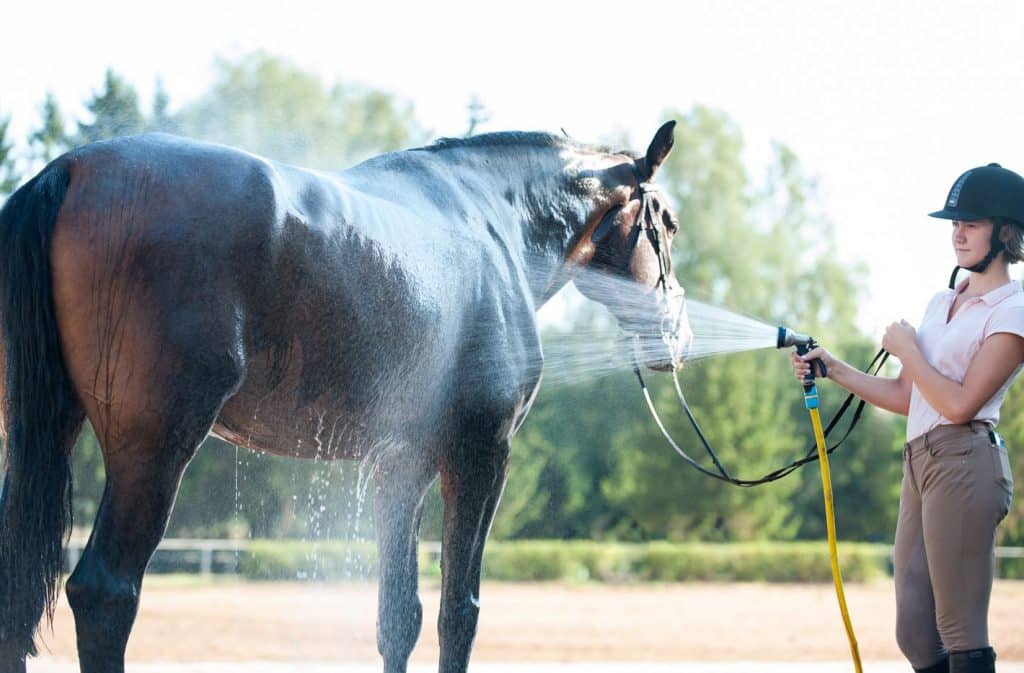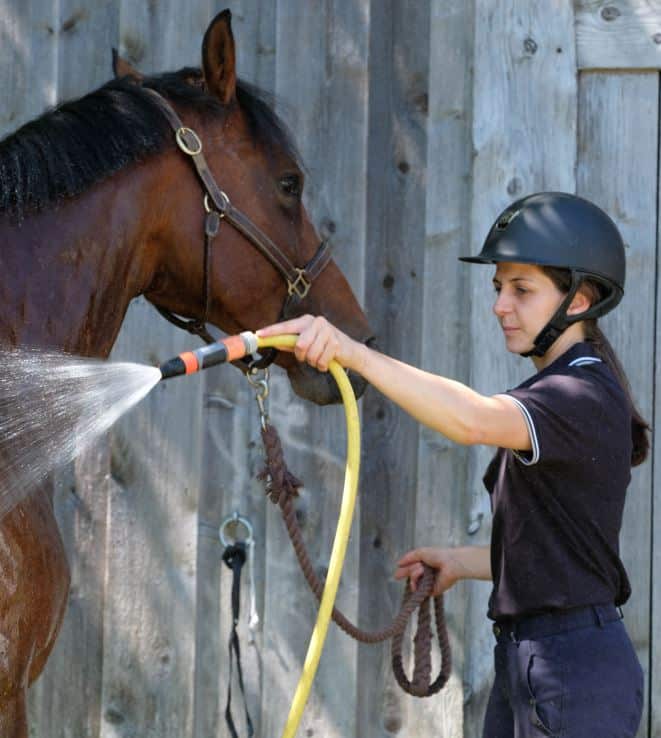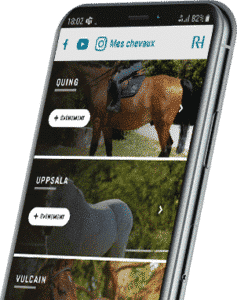Summer can be a difficult time for some horses. And as temperatures tend to rise higher and higher, your horse can suffer. To ensure your horse has a pleasant summer, here are some tips to help him beat the heat.
Adjust your workouts to beat the heat
To avoid sessions that are too difficult for your horse, opt for “cool” sessions, either early in the morning or late at night. You can also do your work sessions a little cooler, like a walk/trotting in the forest. If your barn has a riding arena, it will be more pleasant for your horse to work there, rather than in an unsheltered arena. When you come back from your work session, shower your horse if you have the possibility. This will refresh your horse and activate his blood circulation. Don’t forget to run a heat knife over his body or remove excess water. Let your horse dry in the shade (never in the sun) ideally at the same time as a grazing session to relax him.
Recovery is more difficult in summer because your horse sweats more than usual and therefore loses a lot of water and mineral salts. In order to rehydrate your horse, you can offer him electrolytes in small quantities every day. If he is reluctant to drink, you can use a few tricks, such as putting carrots in the bottom of a bucket of water. Some horses will quickly understand that they need to drink the water to get to the carrots!

Keep your horse well hydrated
A horse normally drinks between 20 and 40 liters of water per day. In hot weather, this consumption can double. So make sure your horse has enough water to stay hydrated at all times. Be careful not to give him water that is too cold, as this could cause colic. Also, make sure to change the water regularly, as it tends to stagnate more quickly in summer. A horse will not drink from water that has gone stale. So clean the water tanks often to remove algae, moss, dead insects or dead leaves.
Avoid sunburn
Some horses can be sensitive to sunburn, especially on depigmented areas (list, barnacle). To avoid sunburn, there are special sun creams for horses (index 50) that should be applied before any exposure to the sun. If your horse’s skin is depigmented over larger areas, anti-UV blankets are available on the market. They will also protect him from insects, which will guarantee him a little more tranquility in the pasture. If your horse has light eyes, you can also put an anti-UV mask on him to prevent any risk of uveitis.
Adapt your horse’s living environment
If your horse lives in a pasture, make sure it has a shelter to get into the shade. If your horse lives in a stall, you can use stall hangings to create shade and keep your horse’s stall cool. If possible, place fans in the stables as well. This will create some air currents that will cool the horses and will also keep the insects away.



